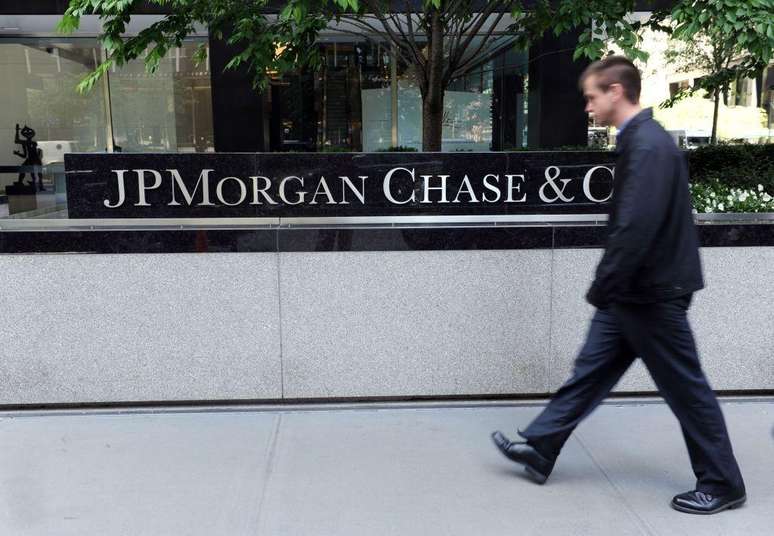The CEOs of large companies are calling for the return of employees to the office, even against the advice of experts, who underline the progress of hybrid work.
In January, the CEO of shipping and parcel company UPS, Carol Tomé, announced that the company was eliminating 12,000 of its 85,000 management positions. And professionals who have not been laid off should come to the office five days a week from March onwards.
For company employees who can carry out some or all of their activities from home, the decision was a cold shower.
Experts insist that, for professionals who spend much of their day in front of a computer screen, hybrid and remote working cannot simply be eliminated.
“It has become essential,” says Professor Colleen Flaherty Manchester, of the Department of Work and Organizations at the Carlson School of Management at the University of Minnesota, in the United States. “We can’t go back.”
Years of post-pandemic data have shown that hybrid and remote work works. The researchers concluded that professionals maintain their productivity and can help companies make profits. And there are also intangible factors that develop employee loyalty, such as a better work-life balance.
In recent years, many CEOs have backed off after toying with the idea of a full return to the office, due to this data and strong resistance from their employees.
But those factors haven’t stopped some companies, including some large ones, from publishing decisions — or at least strong public suggestions — for their workers to return to their desks five days a week.
Especially in the financial sector, major institutions such as JP Morgan Chase, Goldman Sachs and Citigroup have instituted five-day-a-week attendance policies for many of their employees. And Boeing has also decided to force many of its employees to return to their desks.
There is data to show that other senior executives are considering adopting the same measure, especially among large organizations.
Some experts are completely perplexed to see companies like UPS discussing returning to the office. One of them is Stephen Meier, head of the administrative division of Columbia Business School, in New York, United States.
But Meier believes there is a common thread among many of these companies: hard-line management tactics.
“It is not possible to maintain the same leadership style you had before [da pandemia]”, he says. “You really need to empower [os funcionários]… And I think some leaders have simply become accustomed to a certain model of command and control.”
This statement applies to many outspoken critics of remote work, such as Tesla CEO Elon Musk. He was one of the first to issue an ultimatum in 2022, along the lines of “show up or leave.”
In an interview with television network CNBC in May 2023, Musk launched a hateful attack on professionals who wanted flexible work schedules. For him, the “laptop lesson” meant “living in La La Land.”
Economics professor Nicholas Bloom, from Stanford University, US, says Elon Musk’s stance on remote working goes beyond the needs of the company. For him “your life is your company”.
“If you’re Elon Musk, you basically want to spend every minute awake and working. It’s where your mind is focused. You love it. It’s your career. It’s your aspiration, where all your money is invested.” Some CEOs with this mindset expect the same thing from their employees: “if I come back, you will come back too.”
Jamie Dimon, CEO of JPMorgan Chase, also embraces this power and strength approach. He strengthened his commitment to in-person work in July 2023.
Dimon made it clear that if professionals want to include his prestigious company on their resumes, they must meet his requirements.
“I completely understand why someone wouldn’t want to endure an hour and a half commute every day,” he said. “I totally understand… but that doesn’t mean they have to work here too.”
In addition to the cult of personality, some of these intimidating demands may be caused by a different desire for control, especially in today’s uncertain economy, when profits and business performance are unstable.
Bloom refers to a study conducted in 2023 by two professors from the Katz Graduate School of Business at the University of Pittsburgh in the United States. Last year they looked at 137 different return-to-office announcements.
The research concluded that managers use calls for return to office “to reassert control over employees and scapegoat them for poor company performance.”
Bloom argues that many CEOs of financially distressed companies are driven to make large, sweeping changes – even “desperate” ones – to demonstrate to shareholders that they are maintaining profitability.
He is referring to Tomé, from UPS. The company announced a stronger-than-expected revenue decline in its fourth-quarter 2023 results.
“The CEO needs to step up and say something, he needs to take radical action to avoid losing his job,” Bloom explains. “This is what’s happening.”
This kind of demonstration by executives could convince some shareholders that bringing workers back to the office will be the panacea, but experts say the strategy could actually end up hurting company leaders.
“I think of some of these CEOs [que se acham] Sun Kings, like Elon Musk, have this problem,” Bloom says, referring to the absolutist French monarch Louis 14.
“They’re just inaccessible to their employees and they’re not used to listening to them… And they end up forcing this situation, which is a bad decision.”
Bloom continues: “In the long run, performance improves by keeping employees happy and reducing retention and hiring costs. Research shows very clearly that for professionals and managers, hybrid working is profitable for companies.”
And most companies will realize this, according to business administration professor Prithwiraj Choudhury, of Harvard University Business School, in the US.
He believes that companies that have taken a tough stance on returning to the office are an exception, and that many of those that have resisted remote working will soon change their stance.
“I don’t think any company in today’s world can implement an anti-talent policy,” says Choudhury. “It just won’t work. You’ll feel the pain. You’ll see some of your best people leave. And then there will be a course correction.”
Even prestigious companies like JPMorgan Chase may ultimately be unable to exert their influence to prevent the loss of talented employees. But that doesn’t mean all companies will move, especially since professionals have lost some of their power with the downturn in the job market.
Arrogance is a powerful thing and in some cases it can prevail, even against the will of the employees and the logic dictated by the survey data.
Source: Terra
Ashley is a professional author and journalist, working at 247 News Update. She writes on various topics from economy news to general interest pieces, providing readers with relevant and informative content. She brings a unique perspective and in-depth analysis to her work.



